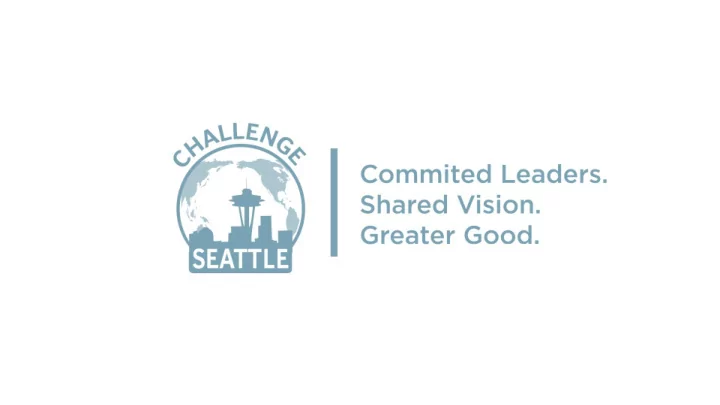

ENGAGING PARTNERS: ESTABLISHING A COMMON AGENDA A transportation system that is safe, reliable, sustainable, and serves the entire community. 1) Create an I-5 system for the 21st century. 2) Integrate operations and planning. 3) Focus on the end user. 4) Proactively maintain transportation assets. 5) Establish a sustainable funding model. 6) Integrate land-use and transportation planning.
TAKING ACTION: REDUCING OUR IMPACT ON TRAFFIC Challenge Seattle companies have made a commitment to reduce Single Occupancy Driving among employees. Reduce SOV rates significantly by 2035. • Find innovative solutions. • Share resources and lessons learned. •
TAKING ACTION: REDUCING OUR IMPACT ON TRAFFIC Initial Focus: Meet City of Seattle’s T arget “Less than 35% by 2035” Challenge Seattle worksites in 2016: Located in Seattle: 33% overall
TAKING ACTION: REDUCING OUR IMPACT ON TRAFFIC 2008 2016 2013 2018
TAKING ACTION: REDUCING OUR IMPACT ON TRAFFIC Next Focus: Innovative strategies for worksites outside the urban core Examples: Vanpools Company Shuttles Flexible Schedules Smart Scheduling
BIGGEST FACTOR IN COMPANY’S ABILITY TO REDUCE DRIVE ALONE RATE? A) Employees Charged for Daily Parking B) Demographics of Employees/Nature of Work C) Fully Subsidized ORCA Cards for Employees D) Transit Access Near Worksite E) Employee Cash Incentives for not driving alone
BIGGEST FACTOR IN COMPANY’S ABILITY TO REDUCE DRIVE ALONE RATE? A) Employees Charged for Daily Parking B) Demographics of Employees/Nature of Work C) Fully Subsidized ORCA Cards for Employees D) Transit Access Near Worksite E) Employee Cash Incentives for not driving alone
TRANSIT: BIGGEST FACTOR IN ABILITY TO REDUCE DRIVE ALONE RATE Source: Transit Accessibility Within King County CTR Sites, Zach Wieben, EIT, Masters of Urban Planning, University of Washington, February 2018
TAKING ACTION: REDUCING OUR IMPACT ON TRAFFIC T o Maximize Our Impact Support Transit Partners • Promote Ridership • Collaborate and Partner in New Ways • New Opportunities as ST2 & ST3 come on-line •
CHALLENGE SEATTLE SUPPORTS “TRANSIT FOR THE WIN!”
#REALIGN99 & “MAX CON” Every Challenge Seattle Member Company to create plan to: • Reduce trips • Reduce peak congestion • Address all impacts of business – Employees – Suppliers – Vendors – Customers
UW Mobility Innovation Center Bring together public, private, and academic experts to solve real-world transportation problems facing the Seattle region. Project based – 6-9 month deliverables; • T echnology and policy-driven solutions that can be • applied in the real-world Partners who are willing and able to implement • prototypes or recommendations.
UW Mobility Innovation Center Projects
Dynamic Curb Study: Improving Traffic Flow, Transit Right of Way What: Pilot curb management strategies and study resulting impact on traffic flow and transit right of way. Partners: Amazon • Seattle DOT • King County Metro • Sound Transit • Challenge Seattle •
Enhanced Mobile Ticketing: Increasing Ridership and Improving Experience What: 5 UW Student T eams will conduct focus group research and design mobile ticket enhancements to better meet the needs of infrequent riders. TEAM 1: Event Attendees (HCDE) • TEAM 2: T ourists (EE ENGINE + BSchool) • TEAM 3: Occasional Riders (HCDE) • TEAM 4: Equitable Access (iSchool + Social Work + Policy) • TEAM 5: Gen. Pop. Incident Avoidance (CoE + Comms) • Partners: King County Metro • Sound Transit • Challenge Seattle •
Recommend
More recommend